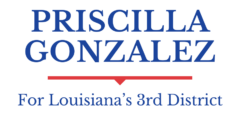The Right to Contraception Act (H.R. 8373) aims to safeguard the access to and use of contraceptives for individuals across the United States. Key components of the bill include:
- Access to Contraceptives:
- Guarantee of Access: Ensures that individuals have the right to obtain and use contraceptives and information related to contraception.
- Health Insurance Coverage: Requires health insurance plans to cover FDA-approved contraceptive methods, counseling, and services without cost-sharing.
- Protection from Discrimination:
- Non-Discrimination Clause: Prohibits any government entity from enacting laws or regulations that could impede access to contraceptives.
- Rights Protection: Affirms that individuals have the right to make decisions about contraception without interference from employers or government authorities.
- Educational Programs:
- Public Awareness: Promotes educational initiatives to inform the public about contraceptive options and reproductive health.
Impact of Voting Against the Bill
Voting against the Right to Contraception Act, as Clay Higgins did, can be seen as highly detrimental for several reasons:
- Reproductive Health and Rights:
- Barrier to Contraceptives: Opposing the bill means potentially maintaining or increasing barriers to accessing contraceptives, which are essential for family planning and women’s health.
- Unintended Pregnancies: Without guaranteed access to contraceptives, the rate of unintended pregnancies could rise, leading to increased healthcare costs and adverse socio-economic outcomes.
- Women’s Rights and Equality:
- Gender Inequality: Voting against the bill undermines efforts to promote gender equality by restricting women’s ability to control their reproductive health and make informed choices about their bodies.
- Health Disparities: It disproportionately affects low-income women and marginalized communities who rely on affordable contraceptive access through insurance coverage.
- Economic Impact:
- Workforce Participation: Access to contraception has been shown to significantly affect women’s participation in the workforce and their economic stability. Restricting this access can hinder economic progress and equality.
- Healthcare Costs: Limiting contraceptive access can lead to higher healthcare costs associated with unintended pregnancies and related health issues.
- Public Health:
- Education and Awareness: By voting against the bill, Higgins opposes initiatives aimed at improving public awareness and education on reproductive health, which are crucial for informed decision-making and overall public health.
Congressman Higgins is essentially opposing these life-saving measures by voting nay. Numerous women could become vulnerable as a result of this choice, lacking the essential resources required to break the cycle of abuse. It robs them of the prospect of a more secure neighborhood where they won’t have to live in continual fear of turning into another statistic.
